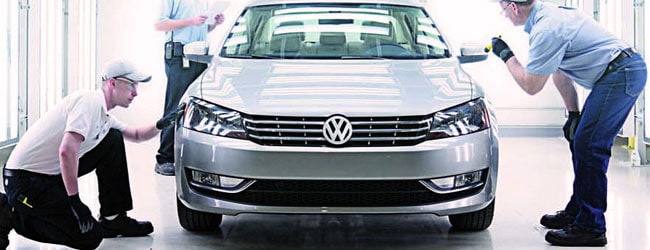
Changing the timing belt in your Volkswagen may not be a part of your list when it comes to maintaining the longevity of your vehicle. However, it is a crucial part of keeping your car running smoother for longer. Unfortunately, this step is sometimes done too late when the owner does not take the vehicle for routine maintenance or ignores recommended changes from the manufacturers. So, when is the right time to change the timing belt on your Volkswagen? Here we detail when experts at Orlando Volkswagen South can step in to help.
What Type of Belt is Used?
Fortunately, Volkswagen uses the next generation of lubricated belts, available in particular on newer engines. If you are looking to save money on this expense, remember that the timing belt plays a crucial role in making your engine run smoothly and in synchronicity with other vital parts of your engine. Ignoring recommended maintenance for your timing belt can cause irreparable damage to your car if the belt jumps a notch or breaks.
What Happens if it Degrades?
At best, a deteriorated timing belt will cause trouble at the start. Indicators of a degrading timing belt could present itself in various ways such as strange engine issues at high RPM, general performance problems when speeding up or switching gears, or complete engine failure. A timing belt is undoubtedly an expensive service among those scheduled in the maintenance books, but replacing the timing belt during scheduled service visits can save you money in the future.
How Is the Replacement Performed?
Experienced mechanics will make sure that the motor is locked in a specific position during disassembly so all elements are in the right place after changing the timing belt. If the timing belt is too relaxed, it can become displaced while driving.
When service experts perform the replacement of the timing belt, each component is observed to ensure proper functionality. Seals that no longer perform their function correctly and let oil flow on to the belt can be a cause of damage, destroying the rubber in the belt and causing the pulleys and rollers to overheat. Also, in case of water pump failure, you would have to change the timing belt, because it is strictly forbidden to assemble or disassemble a timing belt.
A timing belt must be adjusted correctly. When the valves open, they graze very close to the pistons. Therefore, choosing the right time to change your timing belt by referring to your Volkswagen Owner's Manual or the automotive technical journal can expand the life and health of your Volkswagen.
The timing belt is the essential link to keeping your car operating and running smoothly. It maintains the synchronized function between the crankshaft, injection pump, water pump, and the camshafts controlling the intake and exhaust valves.
How Orlando Volkswagen South Can Help
The criteria that determines when to replace the timing belt are the miles traveled (between 60,000 miles and 100,000 miles), unusual noise or functionality in your engine, and if any previous work has been done that required the removal of the timing belt cover and timing belt. It is necessary to schedule a timing belt replacement if any of these criteria are met. Schedule an appointment today with our Volkswagen service center for routine maintenance or feel free to contact us at Orlando Volkswagen South if you have any questions.